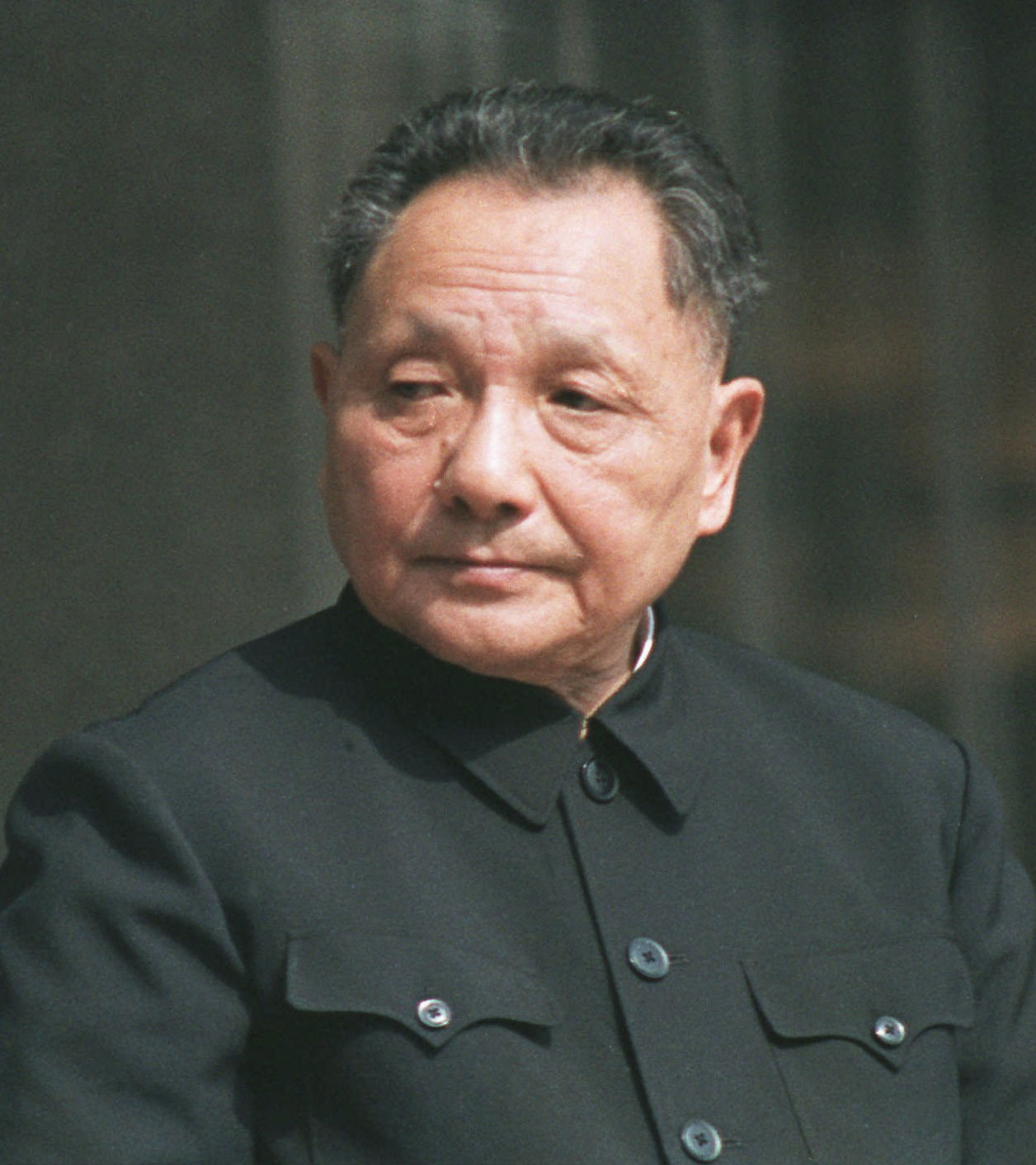More languages
More actions
Deng Xiaoping 邓小平 | |
|---|---|
 Portrait of comrade Deng Xiaoping | |
| Born | August 22, 1904 Guang'an, Qing China |
| Died | February 19, 1997 (aged 92) Beijing, People's Republic of China |
| Nationality | Chinese |
| Political orientation | Marxism-Leninism Mao Zedong Thought Socialism with Chinese Characteristics |
Deng Xiaoping (Chinese: 邓小平) (22 August 1904 – 19 February 1997) was a Chinese politician, most notably the Paramount Leader of the People's Republic of China from 1978 to his resignation in 1989. During his leadership, he initiated a policy of adopting elements of market economics while maintaining the governing role of the Communist Party of China, it's commitment to Marxism-Leninism and to the task of building Socialism according to the Four Cardinal Principles. He is, by such, largely associated with the idea Socialism with Chinese Characteristics, of which Deng Xiaoping Thought is a part, and is considered by many to be the "Architect of modern China". He is a controversial figure among marxists, some of them considering him to be a revisionist, mostly criticising his Opening Up and Reform policy.
Political Career
Deng Xiaoping was born in an educated land-owning family in Sichuan Province. He studied in France, where he became a Marxist-Leninist, joined the Communist Party of China in 1923 and took part in the Chinese Revolution. During his later political career, he would recall the more formative years of the Communist Party of China and its War of Resistance in the following way:
"Now I should like to talk about our Party’s experience during the War of Resistance Against Japan. Tactics serve strategies. The years prior to the anti-Japanese war are called the period of the Agrarian Revolution. At that time we pursued a policy of confiscating land from the landlord class. After Japan stepped up its aggression against China, the national problem became the principal concern, and Japanese imperialism became our main target of attack. Under these circumstances, we had to ally ourselves with all our indirect allies in the world, which included contacts with the United States, for example. The comprador-capitalist class, previously our main target of attack, became one whom we both unite with and struggle against. Its representative was Chiang Kai-shek, with whom we co-operated to resist Japan, adopting a policy of both unity and struggle in the course of co-operation."[1]
After the founding of the People's Republic of China, he became the Party's Secretary General, but was purged twice during the Cultural Revolution. After Mao's death, he managed to return to political power to become the leader of the country by 1978. That same year, he initiated the Opening Up and Reform policy, emphasising the goal of the Four Modernisations, and proposed the following year to revise the Chinese constitution. Deng Xiaoping resigned from his positions in 1989, and died on 19 February 1997 of a combination of a lung infection and Parkinson's disease.
The Opening Up and Reform policy
The Opening Up and Reform policy was proposed in order to deal with the main problems the country faced at the time: namely a very poor population, the lack of an industrial base, and the lack of a large urban population (80% of the population lived in rural areas at the time). Deng Xiaoping saw that the country was still too underdeveloped to build Socialism where premature collectivization has brought antagonistic contradictions between the relations of production and the social character of the productive forces. The idea was proposed of implementing market policies in order to build the productive forces in order to eventually be able to build Socialism. In this regard, the Opening Up and Reform policy can be compared to the soviet New Economic Policy implemented by Lenin. Deng Xiaoping explained his policies in the following manner:
"It is wrong to maintain that a market economy exists only in capitalist society and that there is only “capitalist” market economy. Why can’t we develop a market economy under socialism? Developing a market economy does not mean practising capitalism. While maintaining a planned economy as the mainstay of our economic system, we are also introducing a market economy. But it is a socialist market economy. Although a socialist market economy is similar to a capitalist one in method, there are also differences between them. The socialist market economy mainly regulates interrelations between state-owned enterprises, between collectively owned enterprises and even between foreign capitalist enterprises. But in the final analysis, this is all done under socialism in a socialist society. We cannot say that market economy exists only under capitalism. Market economy was in its embryonic stages as early as feudalist society. We can surely develop it under socialism. Similarly, taking advantage of the useful aspects of capitalist countries, including their methods of operation and management, does not mean that we will adopt capitalism. Instead, we use those methods in order to develop the productive forces under socialism. As long as learning from capitalism is regarded as no more than a means to an end, it will not change the structure of socialism or bring China back to capitalism."[2]
This policy lead to a period of great economic growth for the country, with a median growth of 9.2% between 1980 and 2020[3]. Deng's policies were however criticised by some marxists, many of which maoists, who believed that Deng went too far in his liberalisation of the economy.
Selected Works
Deng Xiaoping's Selected Works are composed of three volumes, each dedicated to works written during a specific timeframe. They are available for free online at https://dengxiaopingworks.wordpress.com.
